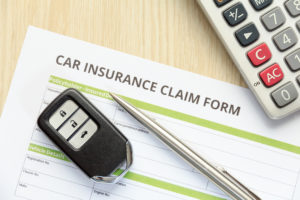 When you are involved in a fatal auto accident, the at-fault driver is liable to provide compensation to you for the damages under Illinois. From medical expenses to the costs of lost wages due to missed work days, you are entitled to make a claim on the other driver’s insurance policy. Unfortunately, some accidents result in death. What can you do if the at-fault driver died in the accident? Will you be able to recover damages from the accident?
When you are involved in a fatal auto accident, the at-fault driver is liable to provide compensation to you for the damages under Illinois. From medical expenses to the costs of lost wages due to missed work days, you are entitled to make a claim on the other driver’s insurance policy. Unfortunately, some accidents result in death. What can you do if the at-fault driver died in the accident? Will you be able to recover damages from the accident?
According to Illinois laws, you can make a claim against a driver who was responsible for the accident and died as a result of it. Death does not change laws and regulations pertaining to personal injury claims and you still are entitled to receive compensation for your damages. You may be worried about the financial situation of the other driver’s surviving family, but when you file a claim against the responsible party, it is made on their insurance policy. The insurance company pays the damages to the plaintiff, which means that the surviving family will not be affected by your claim.
You may feel wrong or guilty in doing this, but you should look at it in this way: they died because of their mistake, and you are lucky that you survived the fatal accident. If the negligent driver was driving under the influence of alcohol or drugs, speeding, using cellphone, or engaged in a dangerous driving behavior, they would likely have faced serious legal consequences in addition to providing compensation to you.
In some cases, insurance policy is not enough to cover all the damages, while in others, the at-fault driver does not have an auto liability insurance. In such situations, you can try and get compensation by making a claim on the deceased’s estate. When people die, they leave behind their worldly possessions which is generally divided among heirs and beneficiaries. There is a chance that the deceased driver had substantial estate. Your attorney can help you file a claim that allows you to recover your damages from that estate.
However, the rule of thumb is that people with large estate generally have premium insurance policies in place, allowing you to cover all damages from them. On the contrary, people who are underinsured or with no insurance at all tend to have little to no estate. If the at-fault driver has insufficient insurance coverage and small estate, you will likely have to bear the expenses or make a claim on your own uninsured motorist insurance.

Being in an auto accident in which the at-fault driver passes away can be a traumatic event. You may be able to make a claim on the descendant’s insurance policy or on their estate, but in the absence of both of these options, you may have to turn to your own insurance coverage. It is advisable that you hire an experienced auto accident attorney, who can help you with the best course of action in your particular situation. Contact the Law Offices of Robert T. Edens, P.C. at (847) 395-2200 or online today to schedule your initial consultation.